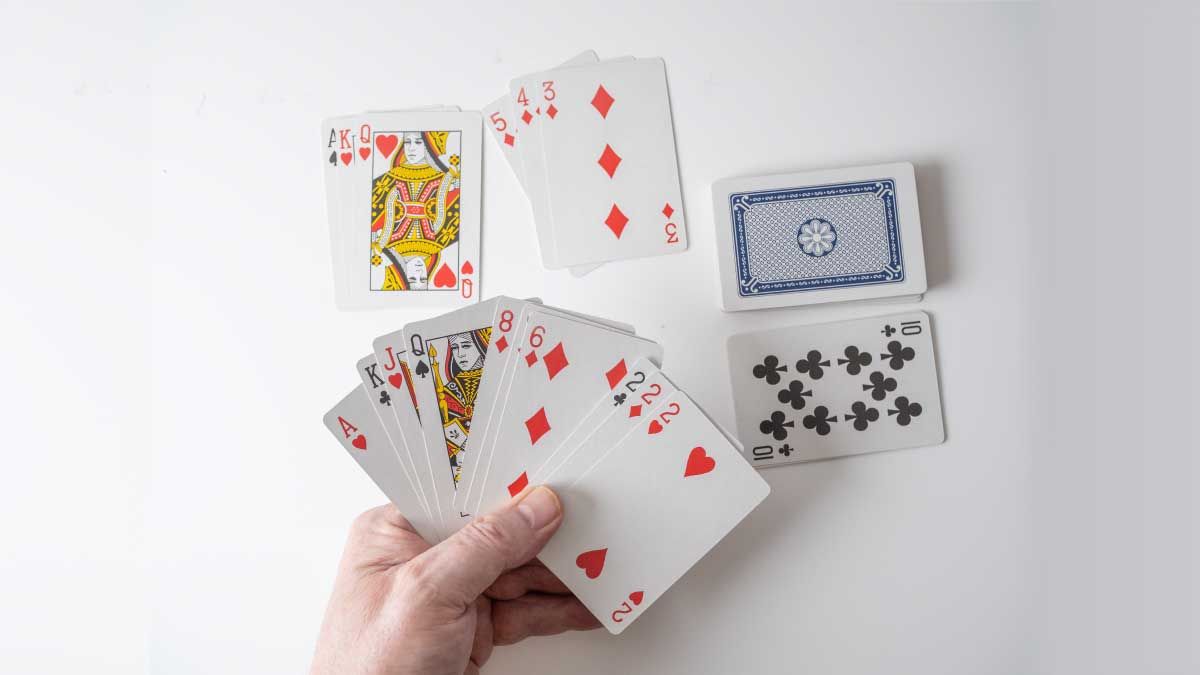Anyone who has grown up in a traditional Indian household must be familiar with card games such as Rummy and Poker. A riveting card game could just about be the ideal conversation starter within groups that have gathered together during special occasions such as Birthdays, weddings, engagements, kitty-parties and outdoor gatherings. Apart from providing oodles of entertainment to players, a Rummy card game also allows people to exercise their analytical skills in a subtle way. And the best part is that by virtue of its easy to understand rules it can be enjoyed by adults and children alike. It doesn’t come as a surprise then that a Rummy game happens to be the preferred pastime activity by many in India and other parts of the globe.
Unraveling the History of Rummy
There are different variants of rummy card game that are played in countries across the world, all of which are based on the underlying draw-discard theme and making of Melds. As diverse the variants of this centuries-old game exist to this date so are the numerous theories regarding the game’s initial conceptualization. It is believed that the Mexicans could be the original pioneers of Rummy game, having founded the game Conquian which bears a very strong resemblance to the modern day version of the game (“Rummy History”, 2011). From Mexico, the rummy card game might have made its way across to the United States where it attained popularity in several states and came to be known by names such as “Coon Can”, “Coon-King” and “Conkin” amongst others (“Rummy History”, 2011). From the US, the rummy game sailed over to Europe and came to be adopted by the English who chose to call it ‘Rum’ which literally translated means ‘odd’ or ‘queer’. Over time it gradually metamorphosed to its present-day name of ‘Rummy’. Alternate theories also attribute the founding of the rummy card game separately to the French and the Chinese (“Rummy History”, 2011)
Understanding the Basics
A Rummy game primarily entails using a two-pronged approach of making melds and card lay off strategy to rid oneself of all assigned cards usually ranging between four and ten depending on the size of the group. As such, the concept of Melds and Lay off is at the very heart of all variants of Rummy game including online rummy. A Meld refers to the formation of either of the following
- A consecutive sequence of three or more cards, all belonging to the same suit.
- Three or more cards of the same rank.
Drawing on from his childhood rummy playing experience, Rummy hobbyist Chirag said, “I still remember how as an eight year old boy I used to sit down with my cousins in my ancestral home and play Rummy games with much gusto amidst a lot of laughter and fun. If my memory serves me right, we would work towards privately creating a meld pattern consisting of up to five cards over several rounds of draw-discard. Upon successfully managing to meld, the winner used to triumphantly thump it down in full view of everybody around and walk off to claim the coveted prize – a lemonade drink!”
Again, there are variants of the rummy game which espouse creating a Meld Pattern with the minimum number of 3 cards and laying it down so that the meld can be further augmented by others. In contrast to the previously mentioned variant, this style allowed one the freedom to create several meld patterns of size three or more over repeated rounds of draw-discard.
Online Rummy making waves
Throw in a bit of cash into the Rummy card game, and it becomes a different game altogether! Stakes are raised with large amount of sums being wagered, making it a much more exciting prospect to play and win the game. Online rummy sites such as KhelPlay and Adda52 are providing users with varied rummy play options which include 24X7 rummy and cash rummy amongst others. New vistas are being opened up to enjoy this centuries-old game through innovative smartphone app solutions such as KhelPlay Rummy mobile app. Rummy enthusiasts can surely look forward to exciting times playing online rummy in the days ahead.



